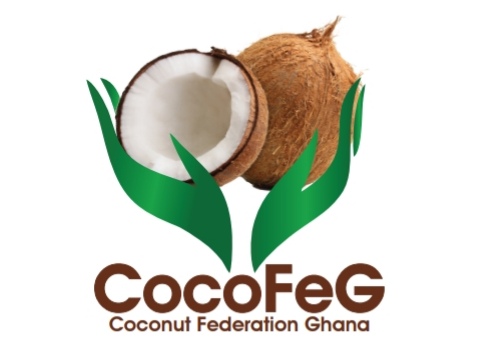In a bold and transformative move, His Excellency John Dramani Mahama, President of the Republic of Ghana, has launched the distribution of three million elite coconut seedlings under the Presidential Initiatives in Agriculture and Agribusiness (PIAA).
The flagship programme, financed by the Ghana Exim Bank, is being jointly implemented by the Coconut Federation-Ghana (COCOFEG) with support from the Federation of Associations of Ghanaian Exporters (FAGE).
Far beyond a ceremonial handout, the intervention represents a strategic investment in Ghana’s rural economy, job creation, youth and women empowerment, and export diversification.
According to Dr Peter Boamah Otokunor, Director of PIAA, Office of the President, “this initiative is designed to position coconut as a game-changer in Ghana’s agricultural space. By targeting over 20,000 farmers across 11 regions, we are not just planting trees – we are planting sustainable futures and inclusive prosperity.”
Supporting this, Mr Patrick Ndabiah, President of COCOFEG, stressed the Federation’s commitment to ensuring every region and farmer benefits. “As a Federation, we are mobilising farmers and building systems that will make Ghana a centre of excellence for coconut in Africa. We are grateful to President Mahama for this bold and practical intervention.”
The initiative is set to unlock transformational opportunities for farming households, with free access to elite coconut seedlings, technical support, training, and linkages to export markets.
The seedlings are expected to achieve a 90 per cent survival rate, creating the foundation for Ghana to become a regional hub for coconut production and processing.
Across the country, from Axim to Keta, the project is restoring hope to thousands. For many rural farmers, particularly women and the youth, the coconut seedlings symbolise the first real opportunity to participate in a structured, scalable, and profitable value chain.
Mr Davies Narh Korboe, President of FAGE, noted: “This is not just about coconuts, it’s about restoring dignity to our rural farmers, creating jobs for the youth, and opening up Ghana to export-led development. Coconut is the new cocoa. Let’s nurture it right.”
With the new seedlings, farmers can expect their first harvests in as little as three years, with mature trees producing for more than 60 years. This is a lifelong investment for families and communities.
Ghana’s coconut sector already contributes more than US$12 million in export value annually, but global demand for coconut and its derivatives – water, oil, coir, husk, milk, and cosmetics – suggests multi-billion-dollar opportunities.
Mr Sylvester Mensah, CEO of GEXIM, reaffirmed the bank’s commitment to financing growth in non-traditional exports. “We are investing in an ecosystem that guarantees jobs, increases export earnings, and drives sustainable industrial growth. Coconut is an economic tree and we are ensuring that every seedling counts towards Ghana’s industrial transformation.”
The initiative is expected to generate over 20,000 direct and indirect jobs spanning nursery operations, farm work, transport, processing, marketing, aggregation, and export logistics.
For many beneficiaries, the project is a miracle in motion. In towns and villages, seedlings are being planted with dreams: dreams of independence, dignity, and a better tomorrow. A young woman farmer from Oti shared her testimony: “I’ve waited for a day like this. I now have 300 coconut seedlings, training, and a market. This is how dreams begin.”
As the Philippines, the world’s second-largest producer of coconuts, embarks on planting 50 million new coconut trees to reclaim its former global dominance, Ghana – Africa’s number one producer – is also charting an ambitious course.
Building on the momentum of President Mahama’s three million seedlings initiative, Ghana plans to plant an additional 10 million coconut trees in the coming years.
This bold vision is not only aimed at consolidating Ghana’s leadership in Africa but also at positioning the country as a global player in the coconut economy.
For others, it is a way out of poverty, a reason to return to the land, and a beacon of hope in a time of uncertainty.
Indeed, the roots of prosperity have been planted, and Ghana’s green future has begun to bloom.
